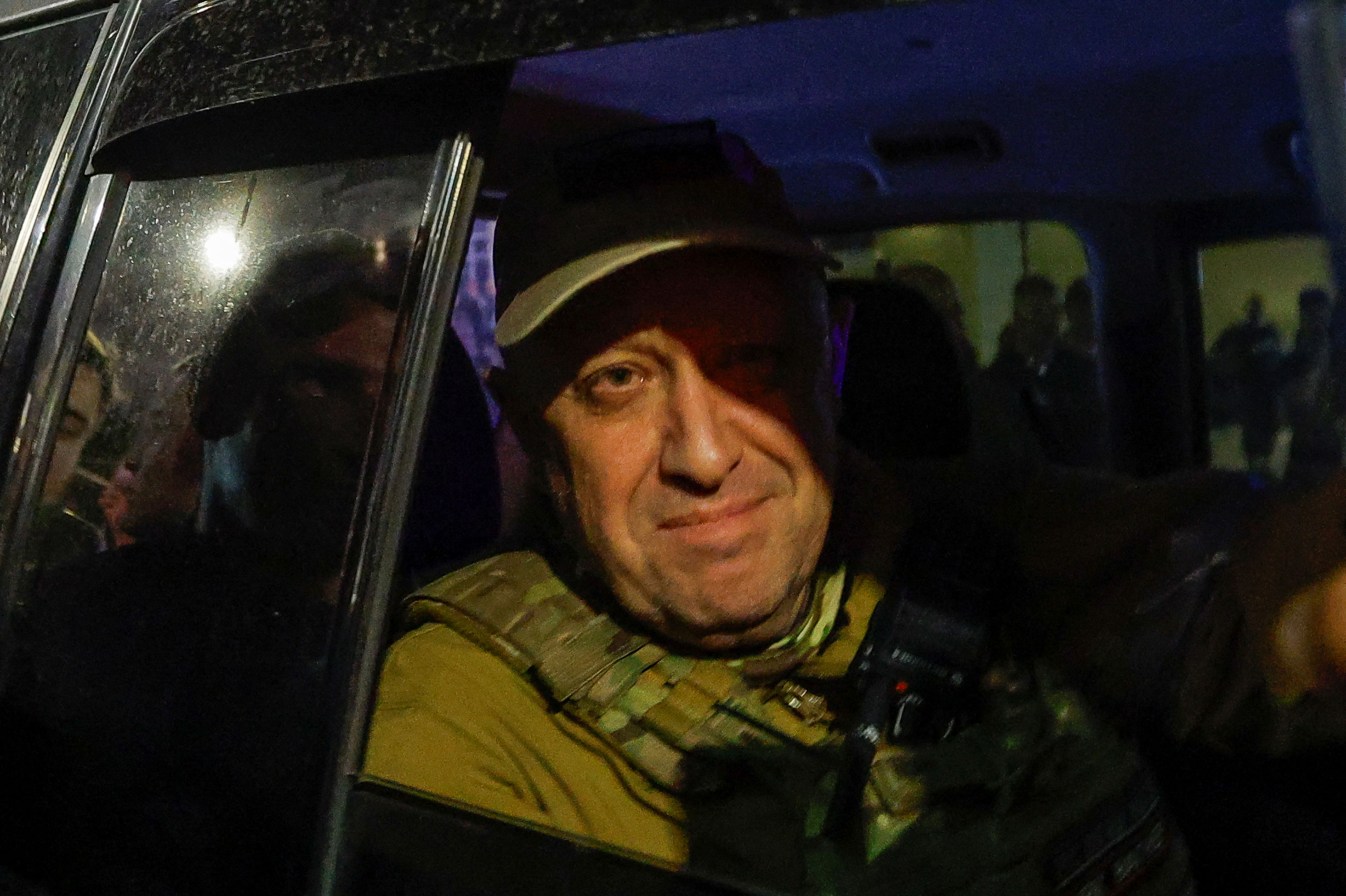Prigozhin says march toward Moscow was a demonstration of protest and not intended to overturn power

Wagner boss Yevgeny Prigozhin released new audio Monday explaining his decision to turn around his march on Moscow.
Prigozhin said he wanted to avoid Russian bloodshed and also said the march was a demonstration of protest and not intended to overturn power in the country.
This is Prigozhin's first audio message since announcing on Saturday night that his column was turning back "to avoid bloodshed."
"Overnight, we have walked 780 kilometers (about 484 miles). Two hundred-something kilometers (about 125 miles) were left to Moscow," Prigozhin claimed in the latest audio message, despite no evidence that his Wagner forces made it that close to the Russian capital. “Not a single soldier on the ground was killed."
“We regret that we were forced to strikes on aircraft," he said. "...but these aircraft dropped bombs and launched missile strikes."
The Wagner boss also claimed in the audio message that about 30 of his fighters died in the Russian military's attack on the mercenary group on Friday. Prigozhin said the attack came days before Wagner was due to leave its positions on June 30 hand over equipment to the Southern Military District in Rostov, Russia.
The purpose of his forces' march toward Moscow, the Wagner boss said, was to prevent the "destruction" of Wagner private military company, and "to bring to justice those who, through their unprofessional actions, made a huge number of mistakes during the special military operation."
Prigozhin said the march stopped when the detachment "made a reconnaissance of the area, and it was obvious that at that moment a lot of blood would be shed. We felt that demonstrating what we were going to do was sufficient."
"At this time, Alexander Lukashenko extended his hand and offered to find solutions for the further work of Wagner PMC in legal jurisdiction," he added.
More background: Prigozhin had agreed to leave Russia for Belarus on Saturday following a deal apparently brokered by Belarusian President Alexander Lukashenko which ended the armed rebellion.
According to Russian Foreign Minister Sergey Lavrov, Lukashenko had suggested the deal to Russian President Vladimir Putin to help resolve the brief mutiny, during a telephone conversation on Saturday morning in order to "avoid the great bloodshed that would inevitably occur if the rebel detachments continued to move towards Moscow. This proposal was supported by President Putin."
No comments: